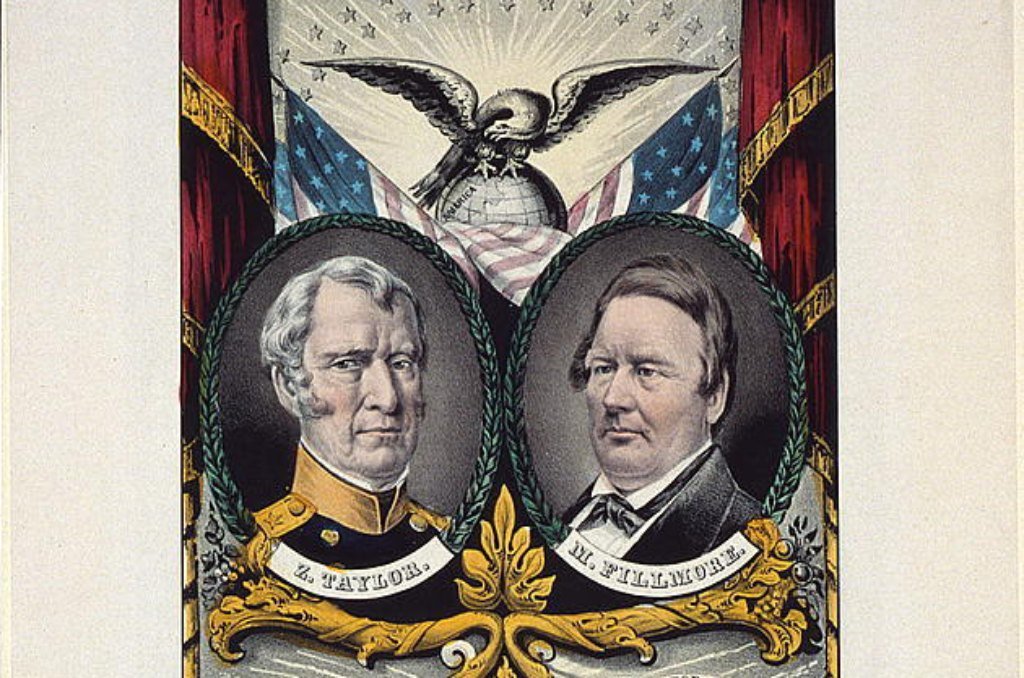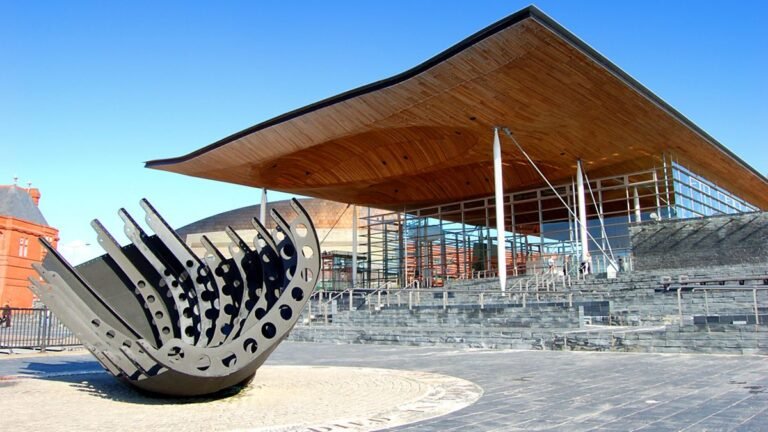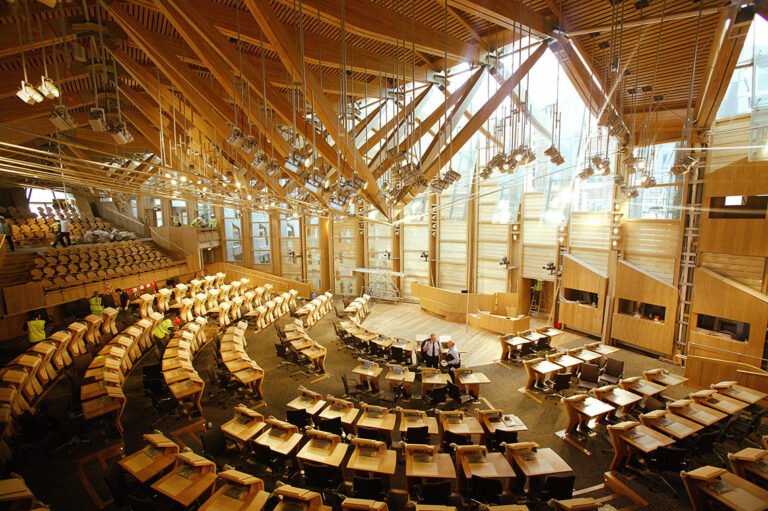The Whigs were a prominent political party in the 19th century. They played a key role in shaping American politics and policy.
Originating in the early 1830s, the Whigs emerged as a counter to President Andrew Jackson’s policies. The party attracted diverse support, including business leaders and reformers. The Whigs focused on promoting economic growth, modernizing infrastructure, and supporting a strong national bank.
Their vision aimed to unite different regions and interests under a balanced government approach. Despite their influence, the party faced internal divisions and changing political landscapes. These challenges eventually led to their decline in the 1850s. Understanding the Whigs helps us grasp the complexities of early American political development. Dive into the story of the Whigs to explore their legacy and impact.

Credit: www.thepublicdiscourse.com
Origins Of The Whigs
The origins of the Whigs offer a fascinating glimpse into the early political landscape of Britain. This political group emerged in the 17th century as a response to the growing tensions between the monarchy and parliament. Understanding their beginnings can offer insights into how political parties shape society and government. So, what sparked the creation of the Whigs, and what principles did they stand for?
Early Political Landscape
Imagine a time when power was concentrated in the hands of the monarchy. The 1600s in England were marked by intense debates about who should hold power. Parliamentarians were eager to limit the monarchy’s control and expand the role of elected representatives. The Whigs were born from this desire for a balance of power. Their emergence was not just a political shift but a reflection of changing societal values.
The era was filled with conflicts like the English Civil War and the Glorious Revolution. These events shaped the political environment and highlighted the need for reform. People began to question the divine right of kings and sought more representation in government. The Whigs answered these questions by advocating for constitutional monarchy and parliamentary supremacy.
Founding Principles
The Whigs championed ideas that were progressive for their time. They supported religious tolerance and opposed authoritarian rule. Their principles were grounded in the belief that government should reflect the will of the people. It’s intriguing to think about how these ideas laid the groundwork for modern democracy.
They also emphasized the importance of individual rights. This focus on personal liberty was revolutionary. It encouraged citizens to demand more from their leaders and seek fair treatment. As you consider these principles, ask yourself how they resonate with today’s political challenges.
Throughout history, political groups have evolved and adapted, yet the core values often remain. The Whigs’ commitment to balance and liberty continues to influence political thought. What lessons can you draw from their origins and apply to the current political landscape?
Key Figures
The Whigs played a vital role in British politics during the 17th and 18th centuries. Prominent figures like Charles James Fox and Robert Walpole shaped policies and advocated for constitutional monarchy. Their influence marked significant changes in political thought and governance.
In the rich tapestry of American political history, The Whigs stand out as a fascinating party that played a pivotal role during the 19th century. Understanding the key figures within this party offers you insights into how they shaped the political landscape. The Whigs were known for their opposition to the policies of Andrew Jackson and their dedication to economic modernization.
With that foundation, let’s delve into two crucial aspects: influential leaders and notable supporters.
Influential Leaders
The Whigs were graced with leaders who left indelible marks on American politics. Henry Clay, often referred to as the “Great Compromiser,” was instrumental in navigating complex political tensions. His vision for the American System emphasized a strong national bank and protective tariffs.
Another towering figure was Daniel Webster, renowned for his eloquence and legal expertise. Webster’s debates in Congress and his defense of the Union were legendary. He was a master at articulating the Whig’s ideals of national unity and economic growth.
Think about how these leaders managed to rally people during times of crisis. What qualities do you think made them stand out? Could any modern-day leaders learn from their approach?
Notable Supporters
Beyond the leaders, the Whigs were backed by influential supporters from various walks of life. Businessmen, eager to see economic expansion, found the Whig policies appealing. Their support was crucial in pushing for infrastructure development, like railroads and canals.
Let’s not forget the intellectuals and writers who championed Whig ideals. Figures like Nathaniel Hawthorne and Edgar Allan Poe were associated with Whig sentiments, weaving political thoughts into their narratives.
Consider how the involvement of diverse supporters enriched the party’s platform. Are there parallel examples today where varied supporters transform political movements?
Engaging with these key figures from the Whigs offers you a window into the past, challenging you to think critically about leadership and support in political contexts. How might their strategies apply to current political scenarios?
Core Ideologies
Whigs believed in constitutional monarchy and parliamentary supremacy. Their core ideologies focused on limiting royal power. Advocating for individual liberties and economic reform, they supported a balanced government.
When discussing The Whigs, understanding their core ideologies offers a fascinating glimpse into their historical significance. These beliefs played a crucial role in shaping the political landscape of their time. As you explore these ideas, consider how they might resonate today.
Liberty And Reform
The Whigs championed liberty as a fundamental right for all individuals. They believed that everyone should have the freedom to express their thoughts and pursue happiness. This principle of liberty was not just about personal freedom but also about ensuring justice and equality in society.
Reform was another key aspect of their ideology. The Whigs pushed for changes that would improve the lives of ordinary people. They advocated for policies that promoted economic growth and expanded educational opportunities. Have you ever wondered how access to education can transform a community? The Whigs believed in empowering citizens through knowledge and reform.
Opposition To Tyranny
The Whigs stood firmly against tyranny in any form. They saw it as a threat to both personal freedom and societal progress. By opposing oppressive governance, they aimed to protect democratic values and ensure a balanced distribution of power.
This stance against tyranny was not just theoretical; it was a call to action. The Whigs supported measures that would limit the power of rulers and increase accountability. Imagine a world where leaders answer to the people, rather than ruling over them with unchecked authority. The Whigs’ opposition to tyranny was about creating such a world, where citizens’ voices mattered.
In embracing these core ideologies, The Whigs set the stage for a more open and just society. Their commitment to liberty, reform, and opposition to tyranny continues to inspire those who value democratic principles. How do you think these ideas apply in today’s political climate?

Credit: www.britannica.com
Role In The American Revolution
The Whigs played a pivotal role during the American Revolution. Their influence shaped the political landscape and propelled the quest for independence. As a leading political group, their strategies and decisions were crucial in the fight against British rule.
Political Strategies
The Whigs employed clever political strategies to undermine British authority. They organized protests, boycotts, and wrote persuasive pamphlets. These actions rallied public support and increased pressure on the British government. The Whigs also formed alliances with key figures, strengthening their influence. Their strategic planning laid the groundwork for revolutionary changes.
Impact On Independence
The Whigs’ efforts significantly impacted America’s journey to independence. Their leadership in Congress helped pass important resolutions. They advocated for bold actions, pushing for complete separation from Britain. Their speeches inspired many to join the revolutionary cause. The Whigs’ commitment to independence was unwavering, driving momentum towards victory.
Whigs In British Politics
The Whigs played a vital role in shaping British politics during the 17th to 19th centuries. Known for advocating constitutional monarchism and progressive reforms, they influenced modern political systems. Their legacy includes promoting civil liberties and opposing absolute monarchy.
The Whigs were a significant force in British politics, shaping the landscape of governance and reform. Emerging in the late 17th century, they were champions of constitutional monarchism and opposed absolute rule. Their influence spanned centuries, with impacts still felt in modern political systems.
Parliamentary Influence
The Whigs played a crucial role in shaping parliamentary democracy. They were instrumental in strengthening the power of Parliament over the monarchy, which was a radical shift at the time. Imagine living in an era where the monarch’s word was law; the Whigs were pivotal in changing that dynamic.
Their advocacy for a constitutional monarchy laid the groundwork for modern democratic systems. They believed in the balance of power, which is something we often take for granted today. Have you ever wondered why the UK doesn’t have a president? You can thank the Whigs for that.
Their influence wasn’t just theoretical. They actively participated in passing legislation that limited royal power and expanded parliamentary authority. This change wasn’t just about politics; it was about giving people a voice.
Major Reforms Enacted
The Whigs were not just talk; they enacted major reforms that transformed British society. One of their landmark achievements was the passage of the Reform Acts, which expanded the electoral franchise. These acts slowly opened the door for more citizens to have a say in their government.
They also pushed for the abolition of slavery, a stance that was both courageous and controversial. Can you imagine living in a world where human beings could be owned? The Whigs stood against this, playing a key role in its abolition.
Education reform was another area where they left their mark. They believed in the power of education to improve society. Think about the opportunities education has given you; much of this stems from reforms the Whigs advocated for.
The Whigs’ legacy isn’t just in laws and reforms; it’s in the spirit of progress and equality they championed. Their actions remind us of the importance of challenging the status quo and striving for a fairer society. What changes do you think are necessary today, and how can you be a part of making them happen?
Decline And Transformation
The Whigs were a major political force in the 19th century. They played a crucial role in shaping American politics. Despite their influence, the party faced significant challenges. These challenges led to their decline and transformation. Understanding this period offers insights into political shifts of the era.
Factors Leading To Decline
Several factors contributed to the Whigs’ decline. One major issue was internal division. The party split over slavery. This caused friction among its members. The North and South had different views. This made unity difficult.
Another factor was leadership struggles. The Whigs lacked strong, consistent leaders. This weakened their ability to rally support. As a result, voter confidence dwindled. Economic issues also played a role. The Panic of 1837 hurt their reputation. People sought new solutions elsewhere.
Legacy And Successors
The Whigs left a lasting legacy. They influenced future political movements. Their ideas lived on in other parties. The Republican Party absorbed many Whig principles. Former Whigs found a new home there. They continued advocating for their beliefs.
The Whigs also impacted political discourse. They emphasized economic modernization. This focus shaped national policies for years. Their decline paved the way for new ideologies. Political landscapes shifted, but their influence remained.
Whig Legacy Today
The Whigs were a political group in Britain. They shaped history. Their ideas still influence us today. Many of their principles have endured. They continue to impact modern politics. Understanding their legacy helps us see today’s political landscape.
Influence On Modern Politics
Whig ideas inspire current political thought. They promoted limited government and individual freedoms. Many modern democracies follow these ideas. These principles encourage checks and balances. They ensure no one has too much power.
Whigs also supported economic freedom. This concept remains significant today. Free trade and competitive markets stem from Whig beliefs. Politicians across the world adopt these practices.
Enduring Principles
The Whigs valued liberty above all. This principle still resonates. Many countries focus on personal freedoms. This echoes Whig ideals from the past.
They also emphasized the rule of law. This idea is crucial in current legal systems. It ensures fairness and justice for everyone.
The importance of constitutional government is another Whig legacy. It remains a cornerstone of political systems worldwide.
Comparison With Other Parties
When you think about political parties, you might wonder how they compare with one another. The Whigs, a prominent party in British history, offer a fascinating contrast to their contemporaries. Understanding these differences can give you a deeper insight into political dynamics. Let’s dive into how the Whigs stood apart from others, notably the Tories, and how they relate to modern political parties.
Contrast With Tories
The Whigs and the Tories were like two opposing forces, each pulling in different directions. While the Tories often prioritized tradition and royal power, the Whigs were champions of parliamentary authority. Imagine a tug-of-war where each side vies for control; that’s the political landscape of the era.
You might find it interesting that the Whigs often advocated for individual freedoms and were more progressive than their Tory counterparts. This sometimes led to heated debates, much like the ones you might witness in today’s political arenas. Would you align with the Whigs’ push for reforms, or do you see value in the Tories’ conservative stance?
Similarities To Modern Parties
Some aspects of the Whigs can be seen in today’s political parties. Their focus on individual rights and parliamentary power resonates with modern liberal democracies. It’s as if the Whigs were early adopters of principles that continue to shape political discourse.
Consider the way modern parties strive for social change and equality. The Whigs’ efforts in these areas often mirror current political movements. You might even draw parallels between the Whigs’ push for progress and the platforms of parties advocating for social justice today. Do you see these echoes in your country’s political system?
If you’re pondering about the evolution of political ideologies, the Whigs provide a historical context that enriches your understanding. Their legacy serves as a reminder of how political parties adapt and evolve, leaving you to wonder how current parties will be viewed by future generations.
FAQs
What Did The Whigs Believe?
The Whigs supported a strong national government and economic modernization. They favored protective tariffs and infrastructure development. Whigs believed in moral reform and opposed Andrew Jackson’s policies. Their platform included promoting industry, banking, and education. They aimed to balance power between the federal and state governments.
What Were The Differences Between The Democrats And The Whigs?
Democrats supported states’ rights and opposed a strong central government. Whigs favored a strong federal government and modernization. Democrats were popular in the South and West, while Whigs found support in the North. Democrats backed territorial expansion, whereas Whigs focused on economic development and infrastructure.
What Is The Difference Between The Whigs And The Tories?
Whigs supported parliamentary supremacy and reform, while Tories favored royal authority and tradition. Whigs leaned liberal, promoting change and progress. Tories maintained conservative values, emphasizing stability and hierarchy. Both were significant political factions in 17th-19th century Britain, shaping modern political ideologies.
What Was The Whig View?
The Whig view promoted constitutional monarchy, individual liberties, and parliamentary supremacy. It opposed absolute monarchy and favored economic progress. Whigs supported reform and were influential in shaping modern democracy. They played a key role in British political history, advocating for balanced governance and civil rights.
Conclusion
The Whigs played a crucial role in shaping political history. Their ideas influenced modern political systems. They stood for values like freedom and reform. Understanding their impact helps appreciate today’s politics. These leaders fought for their beliefs and left a mark.
Their legacy continues to inspire current and future generations. Reflecting on their contributions offers insights into political evolution. We can learn from their successes and failures. The story of the Whigs is a lesson in perseverance and change. History remembers them for their pivotal contributions.
Their journey remains an important part of our shared past.








